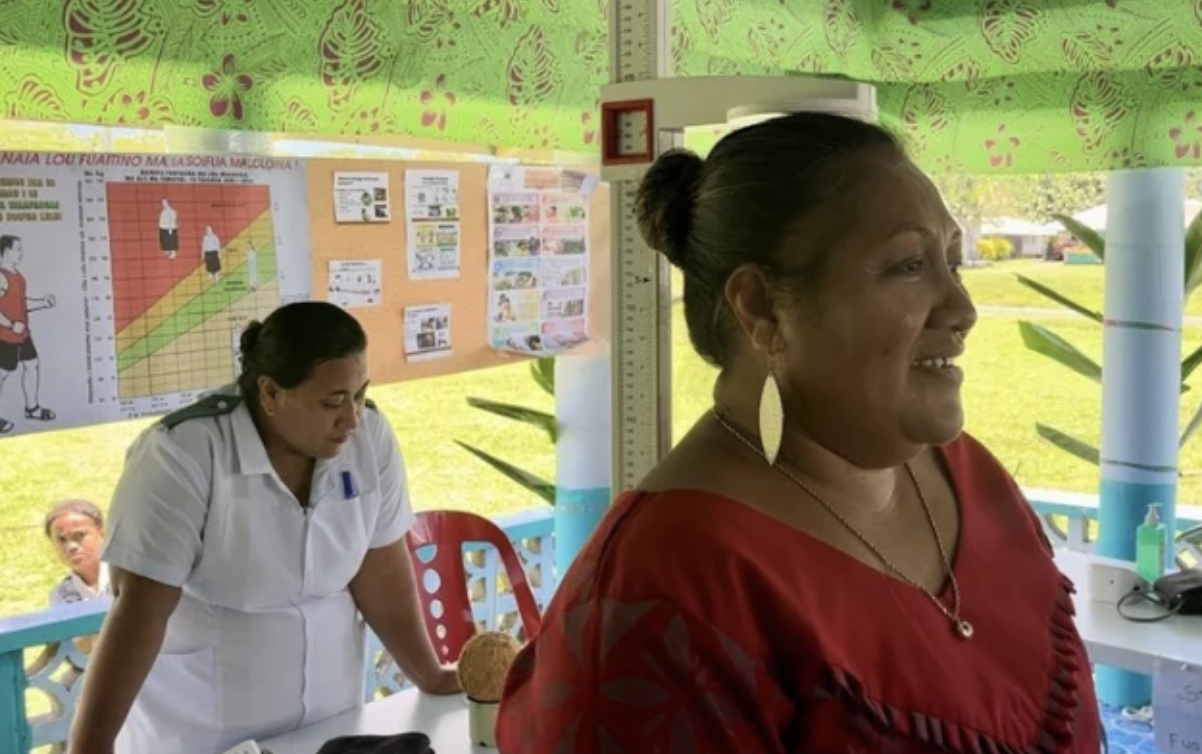The COVID-19 pandemic revealed the need to invest in the service capability and resilience of the health systems of Pacific Island countries. Responding to this need, the World Bank launched three Health System Strengthening operations in Samoa (2020), Kiribati (2022), and Tuvalu (2022).
The Small Island Developing States (SIDS) of the Pacific face significant challenges in healthcare due to their geographic dispersion and diverse economies spread over 30 million square kilometers of ocean. Despite a commitment to universal health coverage, managing healthcare delivery is complicated by the need for costly overseas referrals when in-country services are unavailable.
The region is also grappling with some of the highest rates of non-communicable diseases (NCDs) globally, leading to high premature mortality and disability rates. Poor diet and inactivity have resulted in alarming obesity levels, negatively impacting reproductive maternal, newborn, child, and adolescent health (RMNCAH) outcomes. Additionally, communities face recurrent infectious diseases like typhoid, dengue, tuberculosis, and HIV, further straining healthcare systems. Aging health facilities are at risk from climate-induced disasters, and inadequate service delivery models fail to address health issues before they escalate.
Since 2016, the World Bank has actively engaged with Pacific SIDS to strengthen their health systems through advisory services and analytics. This collaboration has helped countries like Kiribati, Samoa, and Tuvalu gain a deeper understanding of their health systems and initiate strategic reforms. Lessons learned from the COVID-19 pandemic have influenced investment operations, focusing on enhancing national service delivery capacity to improve quality primary and secondary healthcare while addressing NCDs and climate resilience. Vulnerable groups, including those in remote communities and individuals with disabilities, have received particular attention.
Notable innovations include Samoa’s results-based approach, leveraging community groups for health promotion and enhancing digital infrastructure for better patient management, especially for hypertension and diabetes. The World Bank has also improved digital connectivity in Tuvalu and Kiribati to facilitate remote support amidst a scarcity of health professionals.
Between 2020 and 2024, approximately 340,000 people from Kiribati, Samoa, and Tuvalu have benefited from World Bank-supported health system strengthening projects.
- In Samoa, rural health facilities have successfully screened 70% of adults for hypertension and diabetes, significantly raising awareness about NCD risk factors.
- In Kiribati, 40% of the health workforce has undertaken new training, and transport services for hospitals now cover 80% of the population.
- In Tuvalu, upgrades to the Princess Margaret Hospital aim to enhance access to essential health services and reduce the need for costly overseas referrals, while outreach efforts focus on combating NCDs, which are a primary health challenge across the region.


